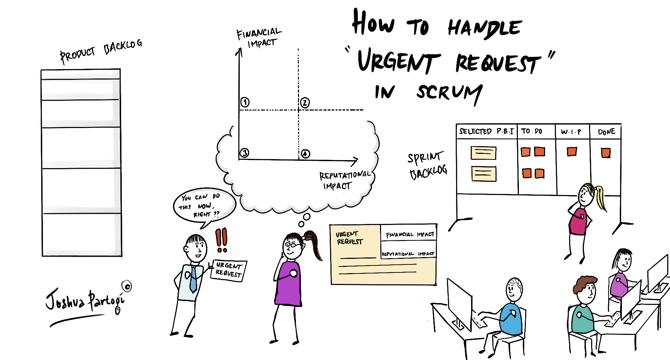Scrum
3w
398

Image Credit: Scrum
How To Handle "Urgent Request" in Scrum
- In Scrum, Product Owners often face challenges with handling 'urgent requests,' especially from individuals with high political power.
- Scrum involves two backlogs: Product Backlog and Sprint Backlog, with the latter containing work the Developers have committed to for the current Sprint.
- It's crucial to differentiate between 'urgent requests' and defects or critical production incidents in Scrum.
- Not every 'urgent request' should be automatically added to the Sprint Backlog; some can wait and be stored in the Product Backlog for future consideration.
- As a Product Owner, consulting and involving the Developers in discussions about 'urgent requests' for the Sprint Backlog is essential to maintain collaboration and trust within the team.
- Assessing whether an 'urgent request' aligns with the Sprint Goal is a critical step for Product Owners to determine its urgency and impact.
- Using tools like the Financial Impact vs. Reputation Impact Matrix can help Product Owners quantify the urgency of 'urgent requests' based on their potential financial and reputational impacts.
- Quantifying the financial impact of an 'urgent request' in monetary terms and assessing the reputation impact can aid in prioritizing these requests effectively.
- In cases of high financial and reputational impacts, 'urgent requests' may be considered for inclusion in the Sprint Backlog after discussion with the Developers.
- Open communication, managing stakeholder expectations, and addressing the implications of adding 'urgent requests' to the Sprint Backlog are crucial aspects of handling such requests effectively.
Read Full Article
23 Likes
For uninterrupted reading, download the app